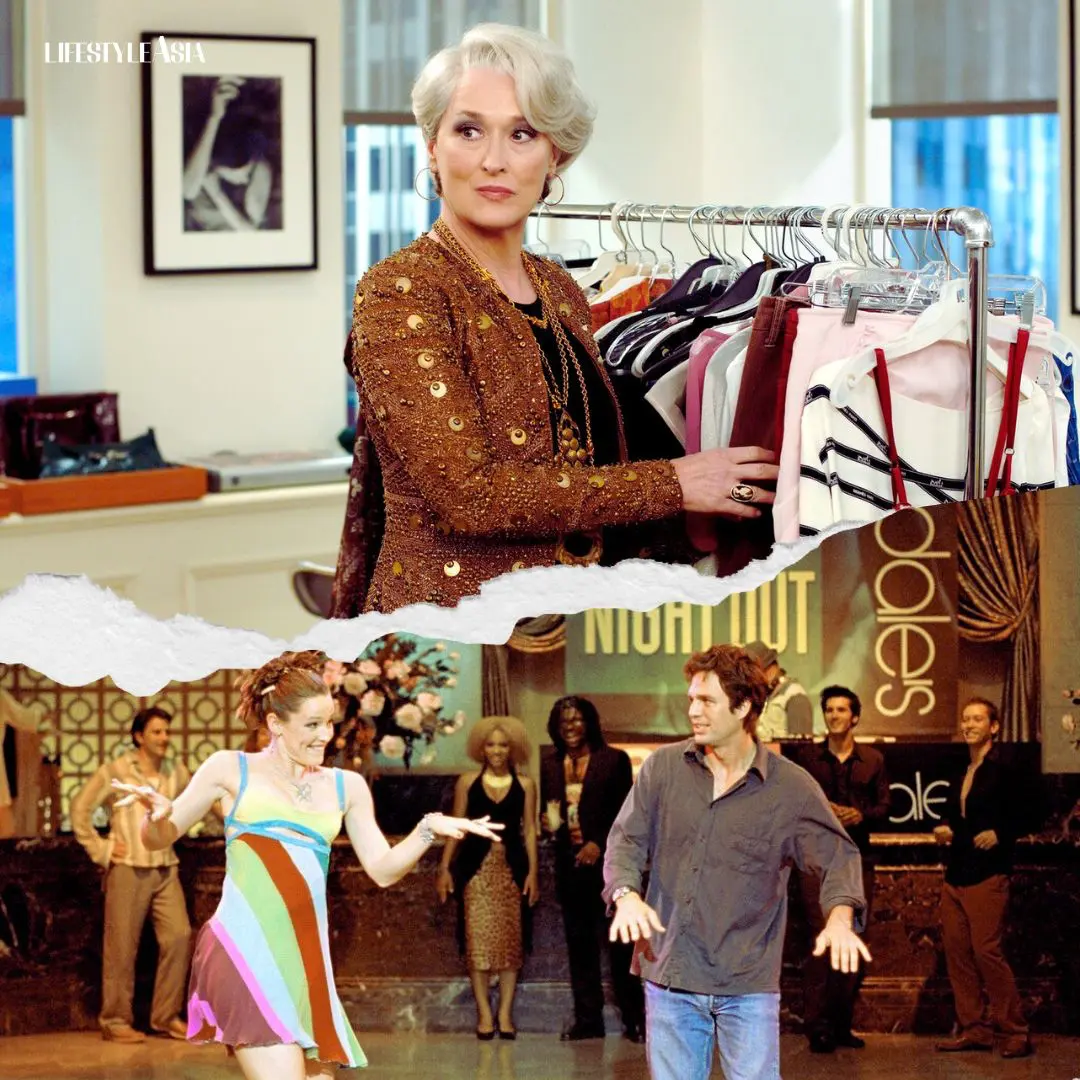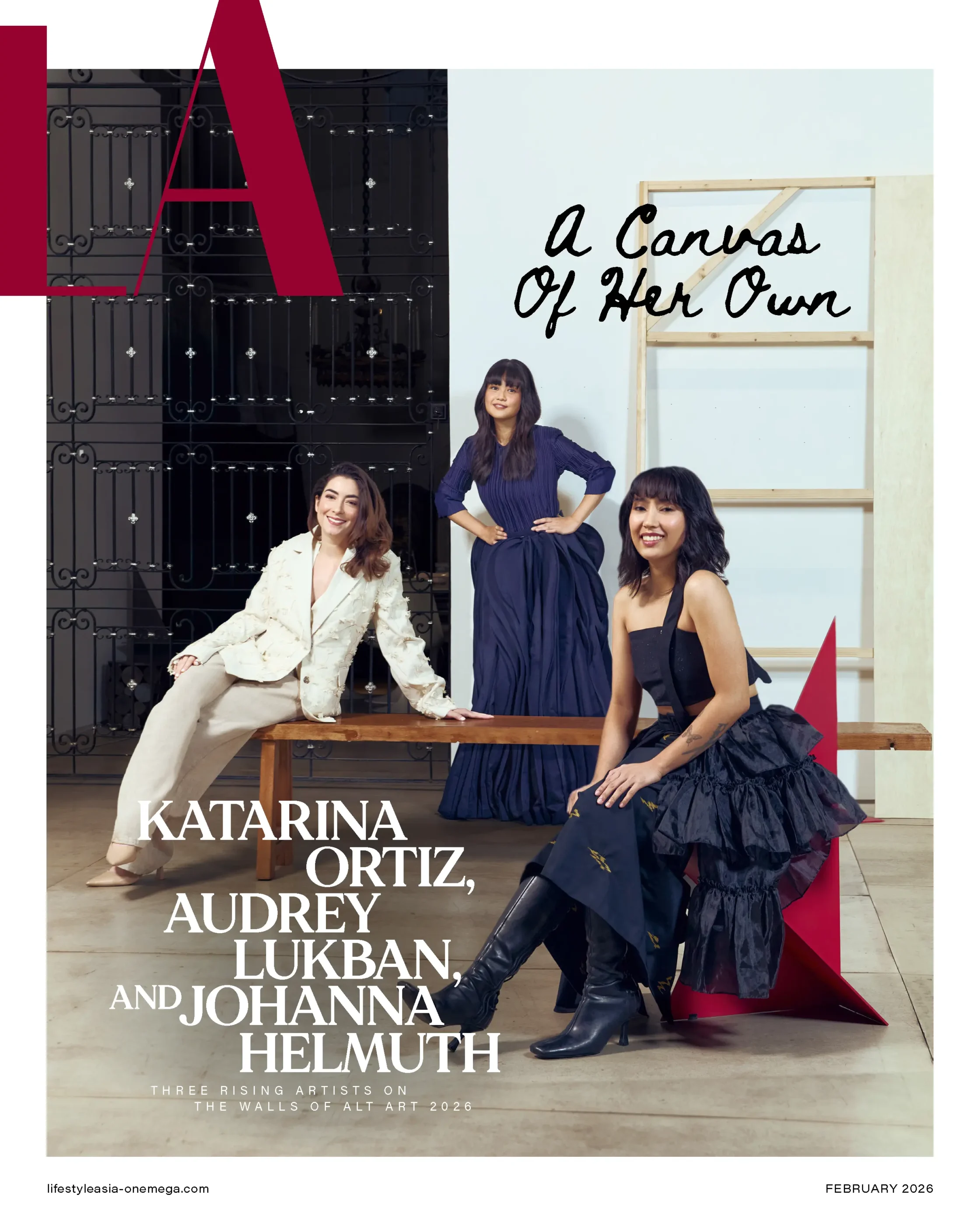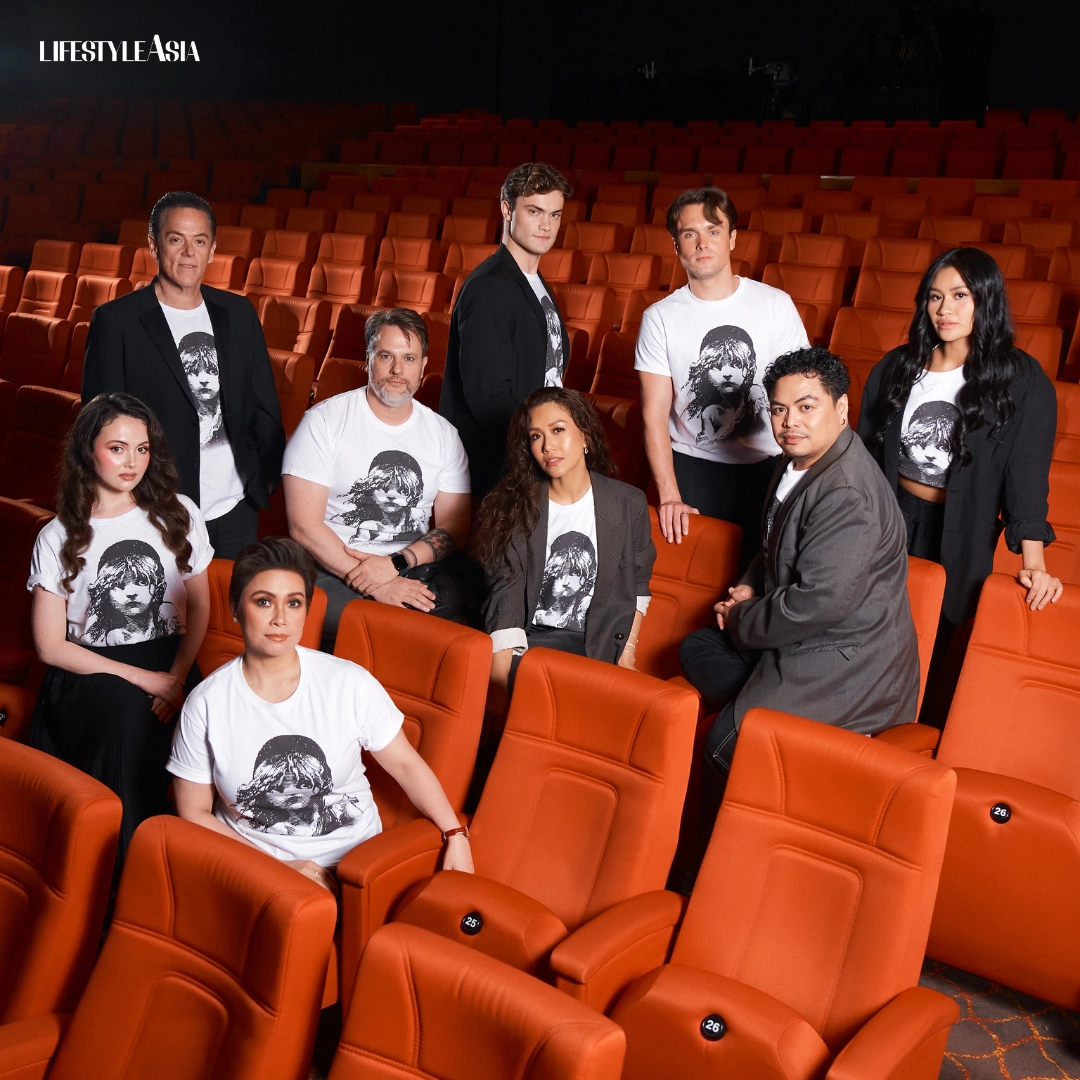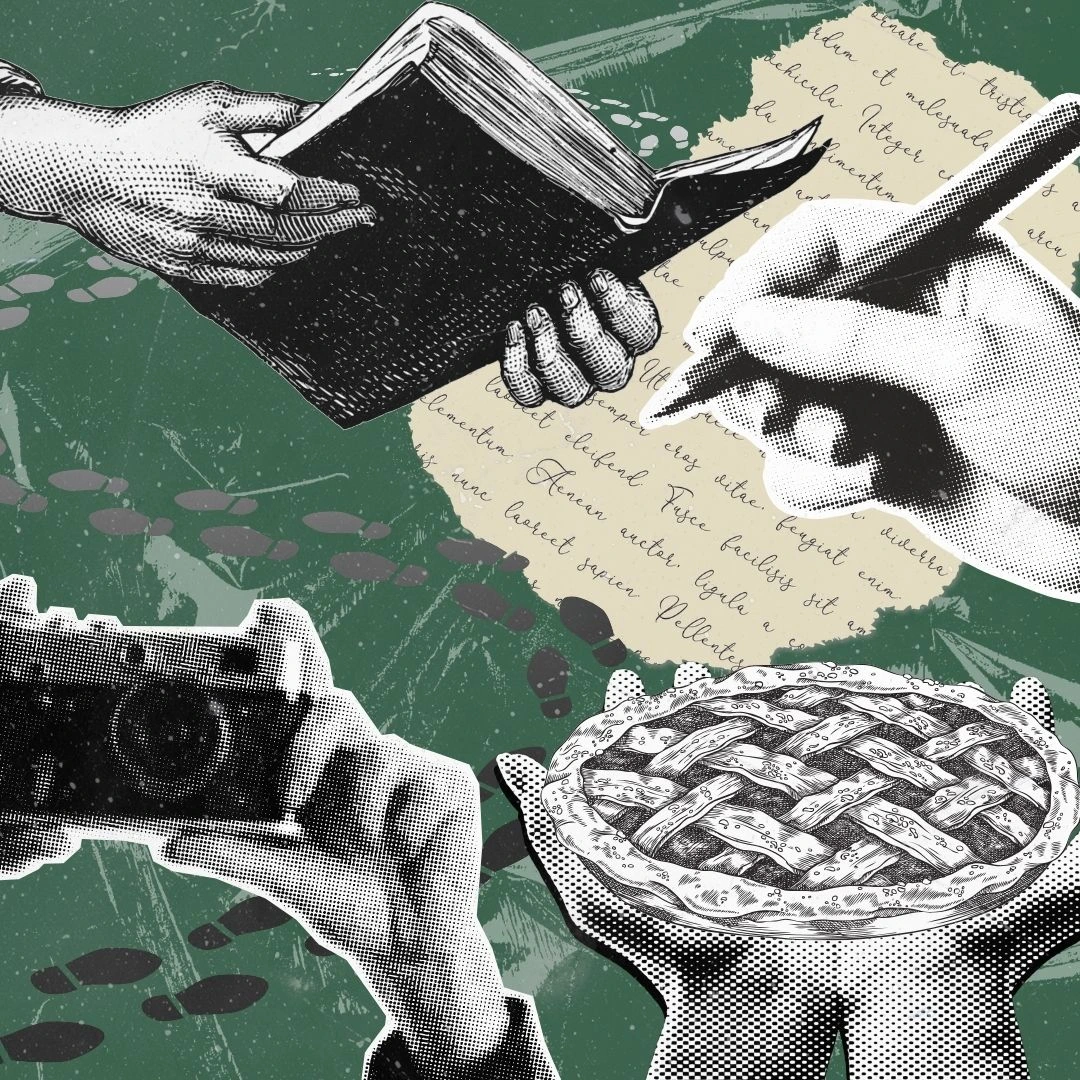A list of films set during the heyday of magazine publishing? Groundbreaking. But it’s not just The Devil Wears Prada—these seven titles fully romanticize the glory days of print.
With on-set paparazzi shots from The Devil Wears Prada 2 currently breaking the internet, our excitement for the long-awaited sequel is sky-high—and, unexpectedly, so is our nostalgia. Suddenly, we find ourselves yearning for the golden age of magazine movies, back when publishing felt just a little more fabulous.
Sure, working in the industry today has its thrills. But once upon a time, it wasn’t just about chasing clicks or being the first to post. Writers spent ten days researching a single article, or they reinvented an entire magazine’s identity by dancing to a hit Michael Jackson song. Sometimes, they overcame their shopping addiction and turned their life lessons into copy. Ah, the good old days.
Okay, fine—we’re romanticizing. But that’s the magic of the movies: letting us revisit a bygone era through rose-tinted glasses. And as magazine folk ourselves, we can’t help but dream of a time when publishing was all about passion over algorithms, instinct over analytics, and stories worth printing on actual paper.
Funny Face (1957)
The grandmama of the fashion girly romantic-comedy—and it stars Audrey Hepburn and Fred Astaire, no less! This iconic 1957 candy-colored musical features a brilliant Gershwin score and showstopping costumes by the legendary Hubert de Givenchy, adding to its overall charm and nostalgic appeal. Audrey Hepburn plays Jo Stockton, a shy bookstore clerk who is accidentally discovered by fashion photographer Dick Avery (inspired by the legendary Richard Avedon). She’s then swept into an unexpected Parisian adventure as the new face of a famous fashion magazine.
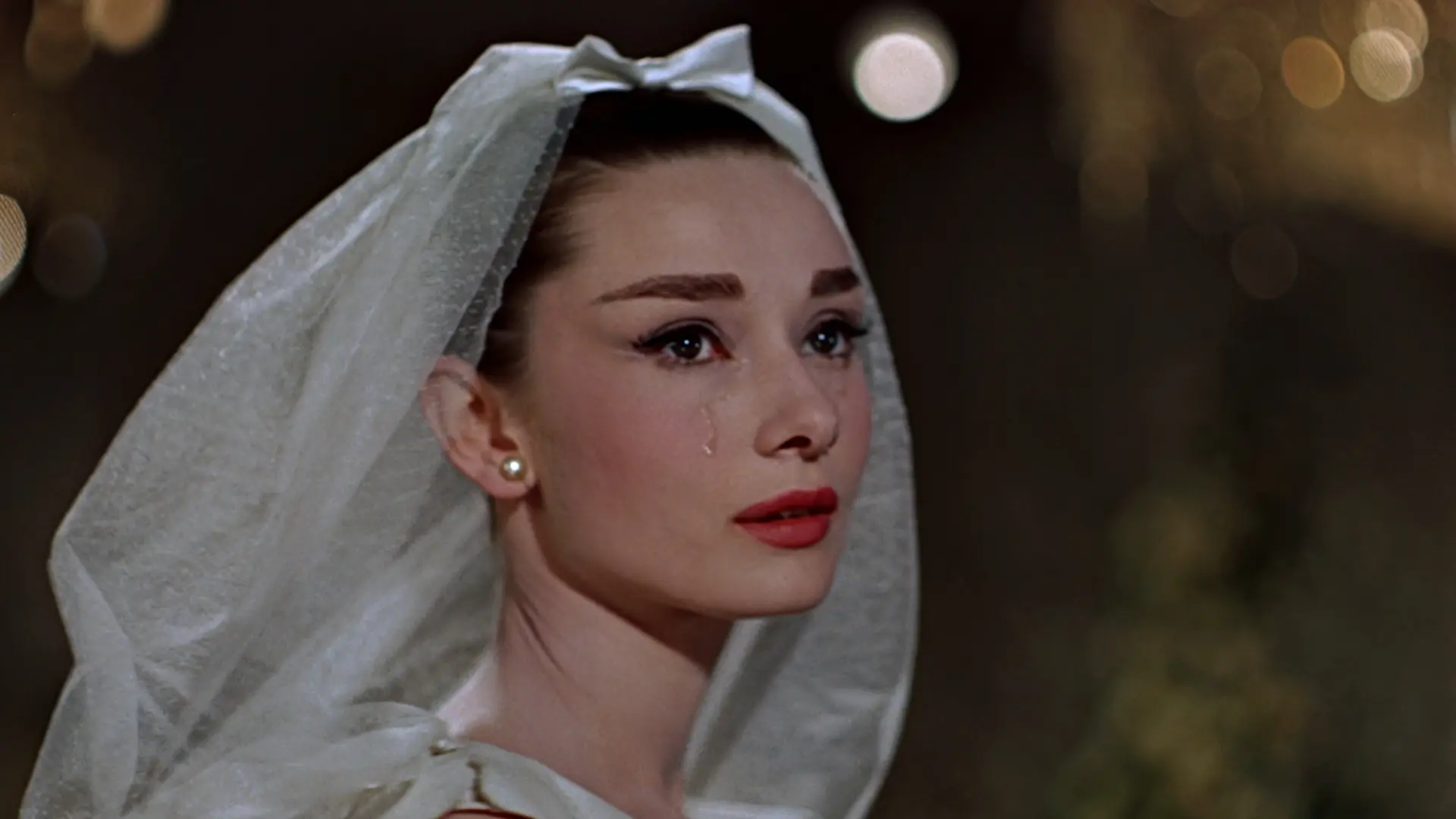
The film is a fashion show from beginning to end, complete with charming music and that giddy, Old Hollywood feeling that’ll have you saying, “They don’t make ’em like this anymore!” Special shoutout to Kay Thompson (who was robbed of an Oscar nomination!) for her performance as Maggie Prescott, the tough-as-nails, razor-sharp magazine editor who walked so characters like Miranda Priestly and Shopaholic’s Alette Naylor could run.
READ ALSO: The 10 Most “Loverly” Audrey Hepburn Movies
Almost Famous (2000)
A talented, music-loving high school teenager named William Miller (Patrick Fugit) pretends to be an adult on the phone with the editor of Rolling Stone magazine—and ends up getting assigned to profile an up-and-coming (fictional) rock band called Stillwater on their “Almost Famous” tour across America. There, he quickly grows up while experiencing the highs and lows of rock ‘n’ roll in 1970s America. Far-fetched? Sure. But it’s actually a true story.
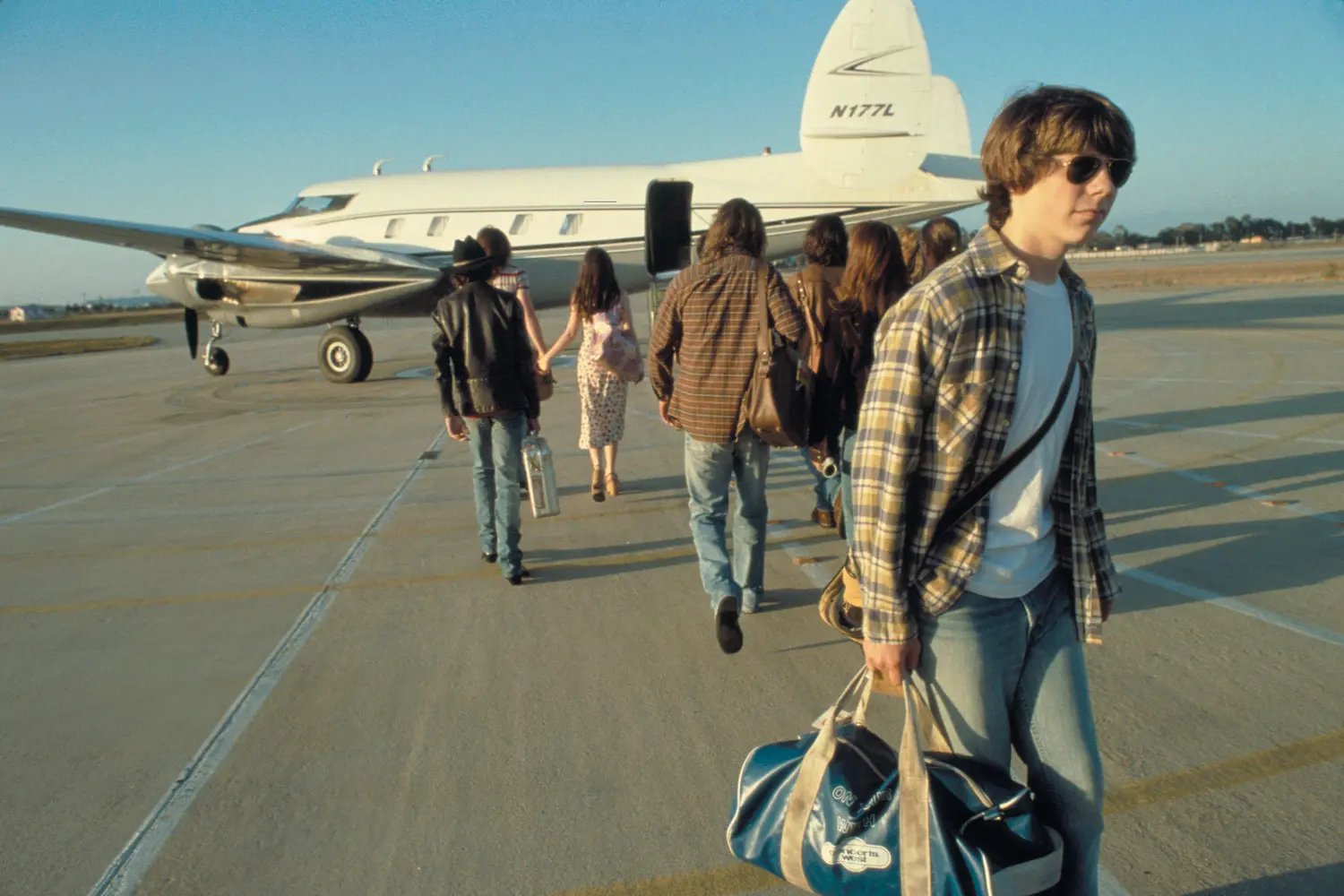
We’re sure director Cameron Crowe took some creative liberties, but generally, Almost Famous is based on his childhood as a teenage rock journalist who toured with real bands while writing for the ultra-cool magazine. Sure, Crowe (aka William) ends up traumatized, heartbroken, and scarred by the end of the film—but honestly, we dream of a childhood like this: discovering your potential early and having the chance to act on it, thanks to raw talent and a supportive mom (played by Frances McDormand). Almost Famous makes us want to travel back in time, rock with the rockers, ride the buses, write for magazines, charge things to an expense account, and sing Elton John’s “Tiny Dancer” at the top of our lungs.
Down with Love (2003)
Catcher Block, the womanizing man’s man (and man about town), played brilliantly by Ewan McGregor, works for a magazine aptly titled KNOW, where he’s built a name for himself as a hard-hitting journalist known for relevant exposés. On the other hand, our female lead, Miss Barbra Novak (Renée Zellweger), has just written a book called Down with Love, which encourages women to believe they don’t need men. When the book becomes an international bestseller—and Catcher’s womanizing lifestyle is suddenly under threat—he decides to disguise himself as an unsuspecting, sweet Southern astronaut, planning to make Barbra fall in love with him and take her down in the process.
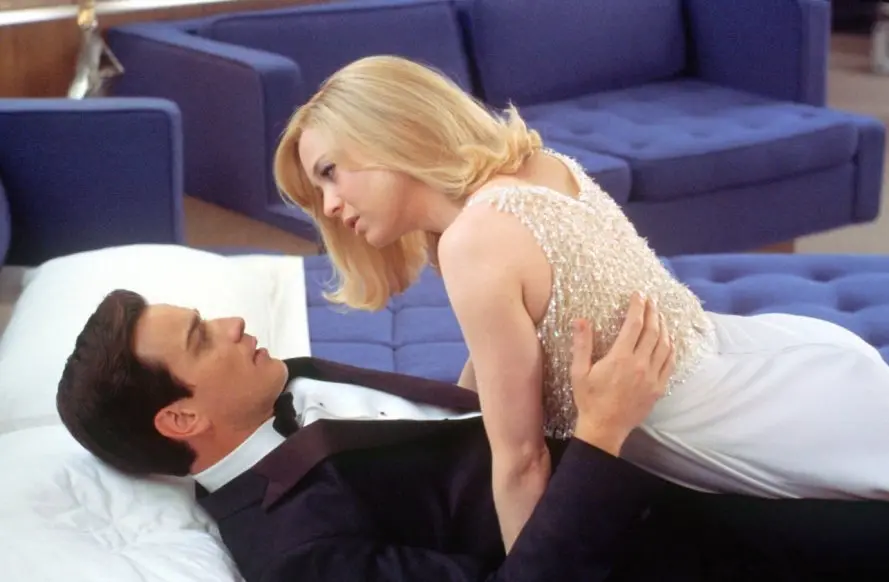
Down with Love was a critical and financial disaster upon its release in 2003, but has since been reappraised as a brilliant film with the audacity to stay true to its artistic vision: a loving homage to the classic sex comedies of Doris Day and Rock Hudson from the 1960s. What makes it so fun isn’t just the comedic peek into a romanticized version of the publishing industry—it’s the film’s entire vibe: clever sexual innuendos, electric chemistry between the leads, a biting screenplay, candy-colored visuals, and jaw-dropping costume and set design.
READ ALSO: 6 Candy-Colored Films To Brighten The Rainy Season
How to Lose a Guy in 10 Days (2003)
Gone are the days when a magazine writer could actually spend time crafting a single story. While some pieces truly deserve time, effort, and research, today’s fast-paced world often requires us to chase trends and publish when topics are at their hottest and most relevant. So we suspect that if How to Lose a Guy in 10 Days were made in 2025, Andie Anderson (played by Kate Hudson) would simply swipe Matthew McConaughey away on a dating app—and never think about him again. But what’s the fun in that?
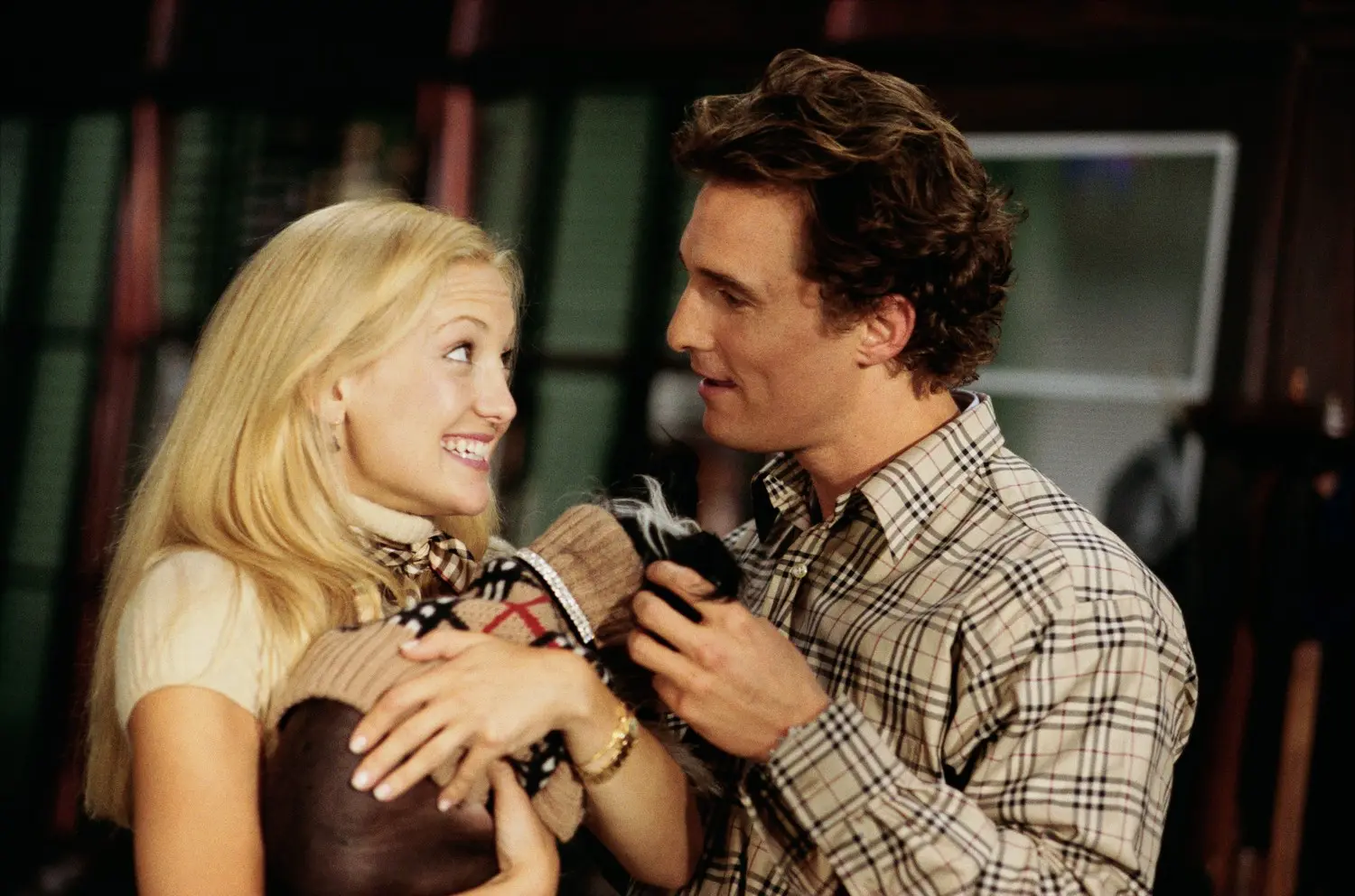
We’re grateful the film was made when it was, because it’s incredibly funny and one of the great romantic comedies of modern cinema. Andie’s article—sharing the same title as the film—gives her the perfect setup for a series of hilarious situations designed to drive a man away. Unluckily for her, she lands on cocky advertising executive Benjamin Barry, who’s so confident in his romantic abilities that he bets he can make any girl fall in love with him before a big client event. Comedy ensues. Things get complicated. Situations escalate. But when the ink dries on Composure magazine, we just know it’s going to be a happy ending. It’s a romantic comedy, after all.
13 Going on 30 (2004)
Millennials around the world have dreamt of becoming Jenna Rink since first watching 13 Going on 30 when it was released in 2004. I mean, who wouldn’t want to be a “thirty, flirty, and thriving” New York City magazine editor with a fabulous apartment and an even more fabulous retro-inspired wardrobe? The best thing about it is that the filmmakers—and Jennifer Garner’s wonderfully quirky performance—make Jenna someone we can truly root for, even though she probably did some pretty despicable things before her thirteen-year-old self took over her adult body.
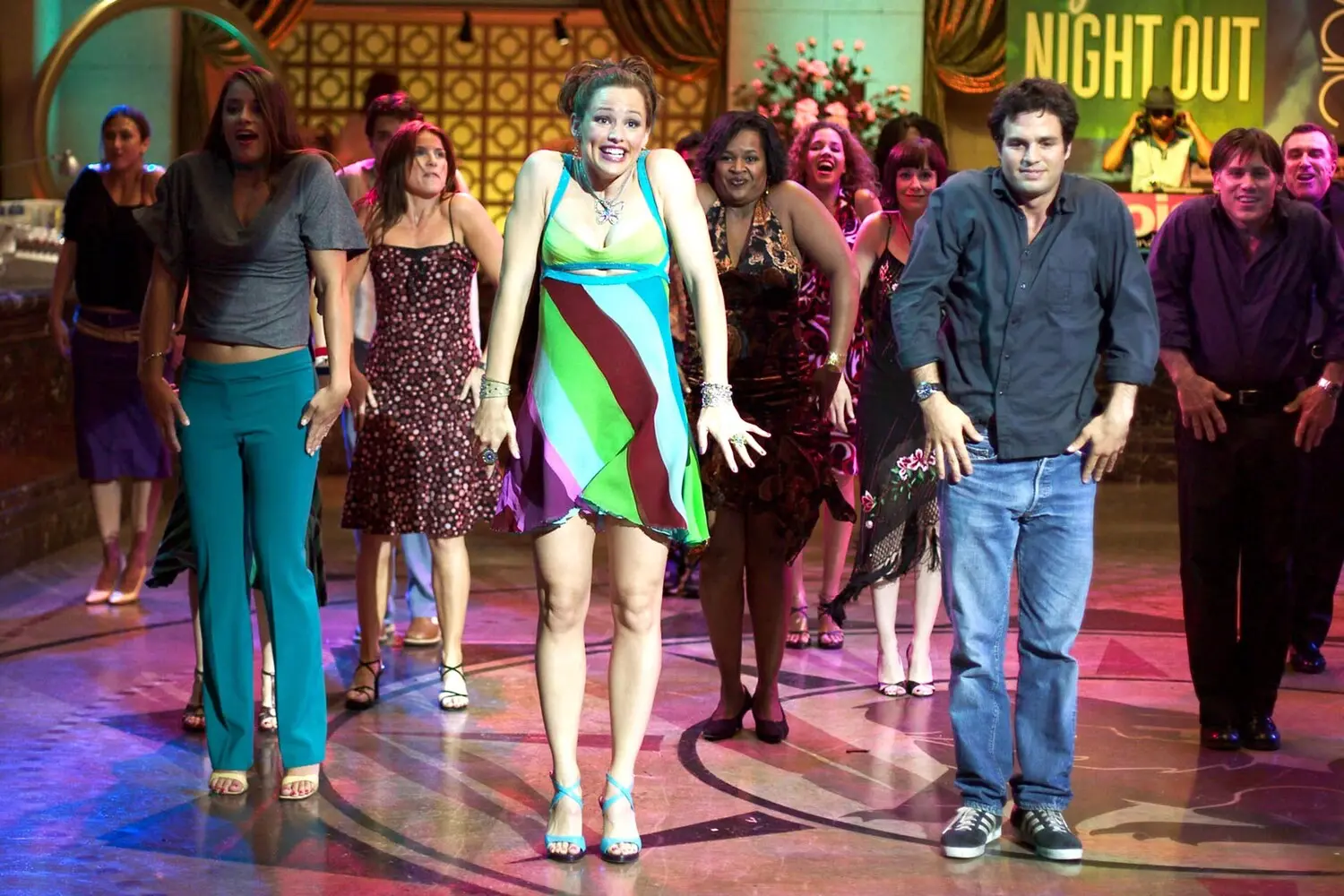
A recent rewatch on Netflix (where 13 Going on 30 is currently streaming in the Philippines) proves just how well the film holds up. Not as a serious look at magazines or the publishing industry, but as a feel-good movie, so simplistic in its themes that it’s just utterly fun and charming. Jenna redefines the magazine’s stiff reputation by dancing to “Thriller” at an event. Sure… But how can we resist? It’s so wonderful—and TBH, we’ll be watching it for years to come. That sweet romance at the center of it also makes our hearts melt every single time.
The Devil Wears Prada (2006)
Did somebody say “Mother”? The Devil Wears Prada is the Mother of all movies about publishing. The film is so iconic, so quotable, so memorable, so everlasting, that it slaaaays all competition right out of the arena. The film has every ingredient to make it a certified classic—not just in our books, but in the cultural consciousness of the entire globe. The gorgeous Anne Hathaway in her ingénue era? Check. Brilliant comedic performances from everyone in the cast? Check. The New York publishing scene in the mid-2000s? Check. An utterly quotable and fabulously tight screenplay? Check. The clothes? Check, check, check. An iconic performance from the Queen of the Screen, Meryl Streep? UBER CHECK.
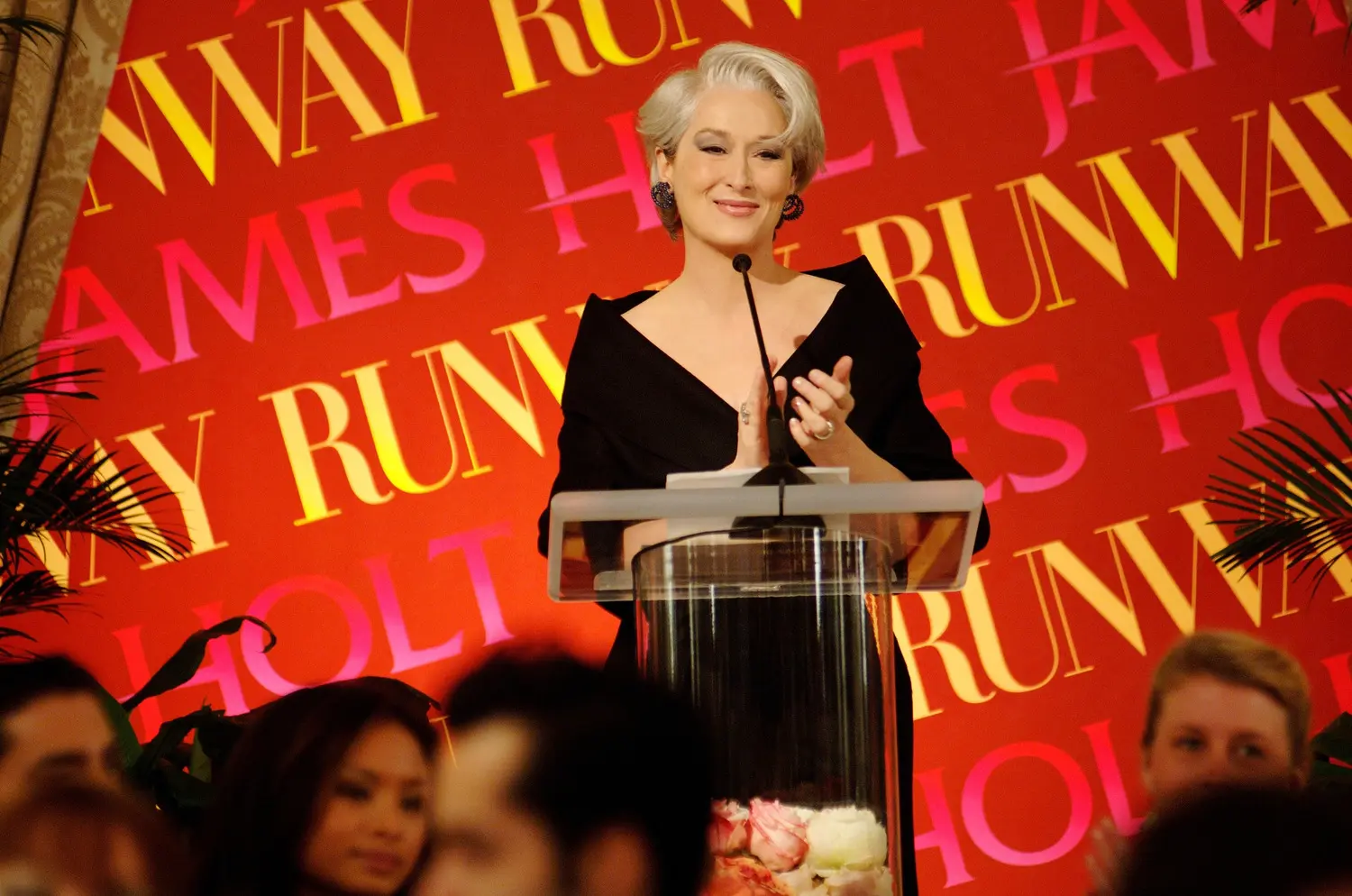
Our apologies for gushing, but it’s the truth. The film remains wildly popular nearly 20 years later, so much so that 20th Century Studios has now greenlit a sequel. That’s shocking for a film of this nature, especially since it’s not a mega-franchise or IP like Top Gun, Scream, or some comic book superhero. But praise be to the movie heavens! We’ll be girding our loins at the theater when it’s released, wearing our best cerulean-colored sweaters and eating carbs, for chrissakes. That’s all.
Confessions of a Shopaholic (2009)
We find a heroine in Rebecca Bloomwood (Isla Fisher), our titular shopaholic, who dreams of becoming a writer for a top New York City fashion magazine. When she lands a job at the magazine’s sister title—an up-and-coming finance publication—she quickly makes a name for herself as The Girl with the Green Scarf, doling out financial advice by cleverly comparing money matters with fashion and shopping. The problem? Becca’s own shopping addiction and mounting debt soon catch up with her budding career!
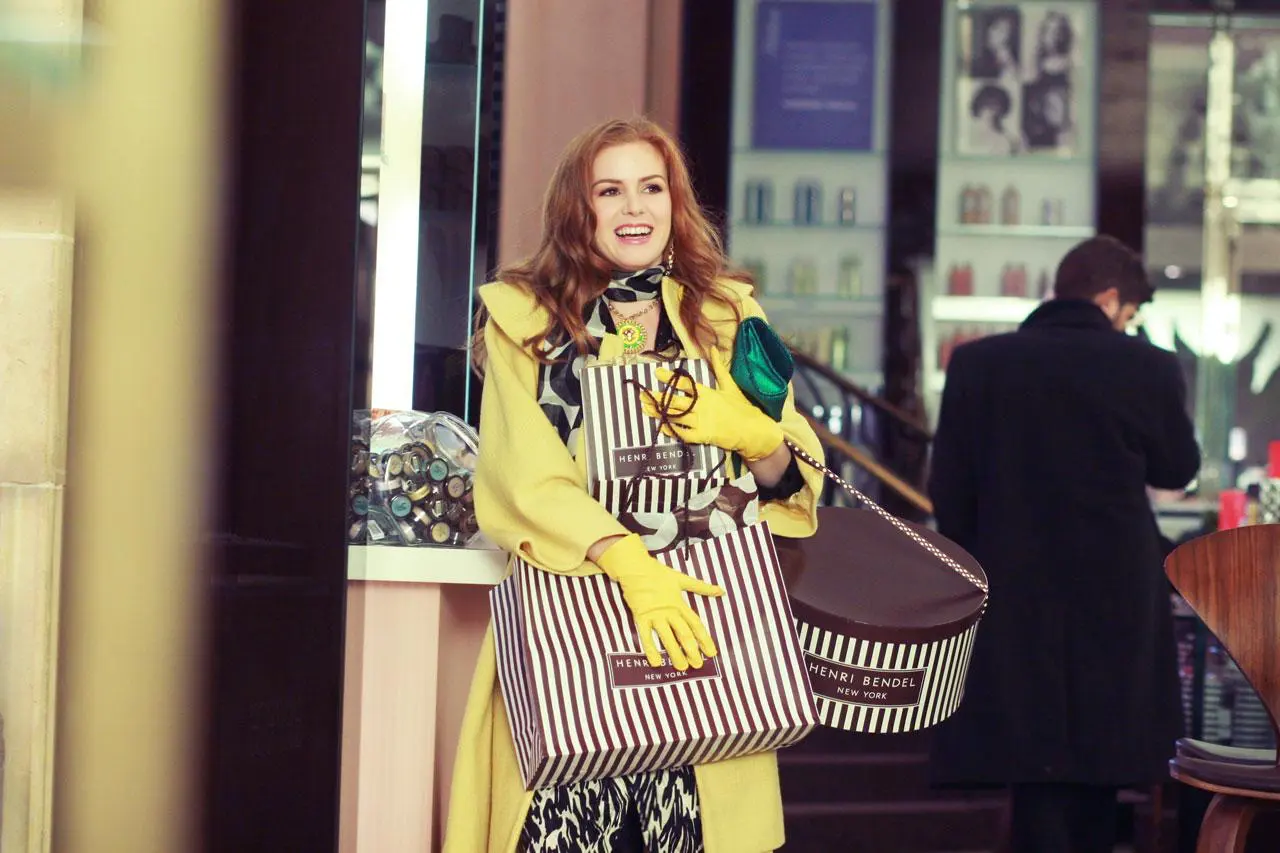
Fun, quirky, and honestly just a great movie to throw on when you’re bored, Confessions of a Shopaholic also inspired another generation of magazine girlies looking to make it in the industry. Was it the fashion? Probably not—the outfits are often questionable in this film. But what was undeniably stylish was Rebecca’s tenacity, bright personality, and positive outlook, all of which made her—and the film—utterly relatable, enjoyable, and inspiring.
Banner photos courtesy of Kinorium.com
